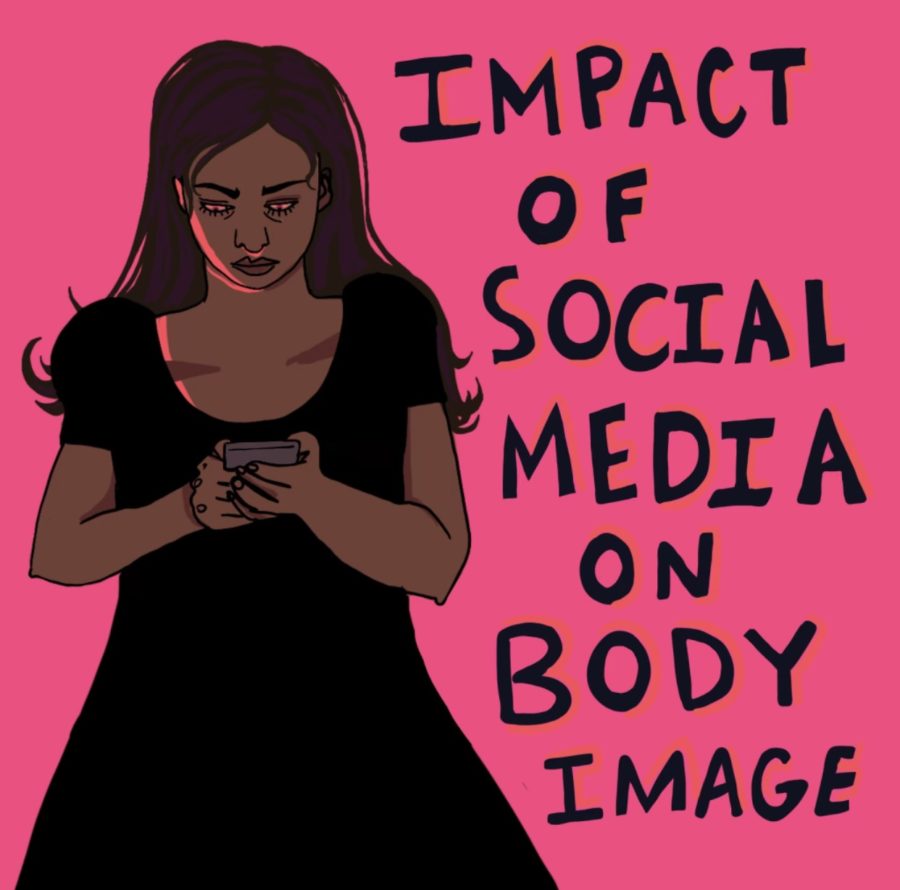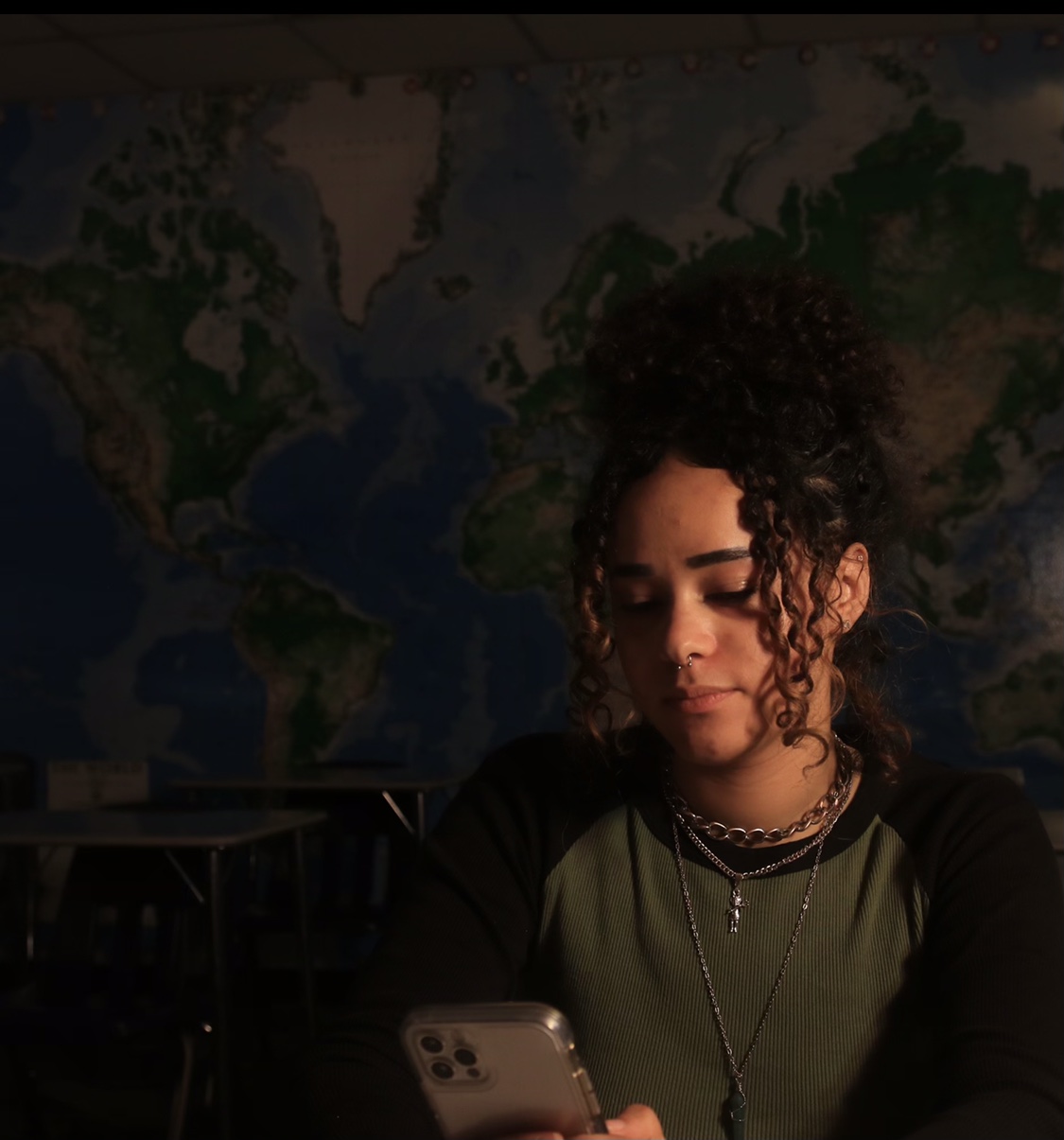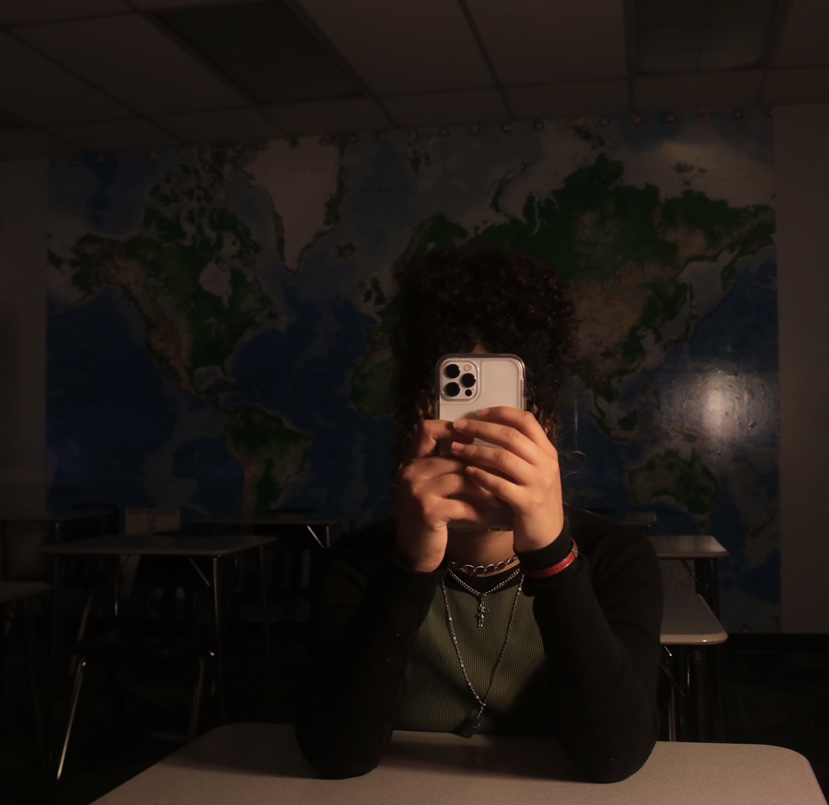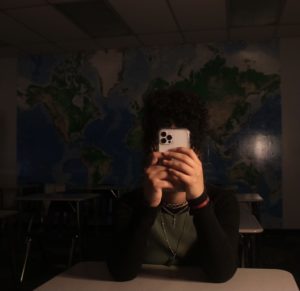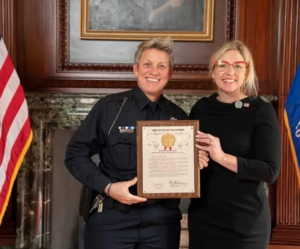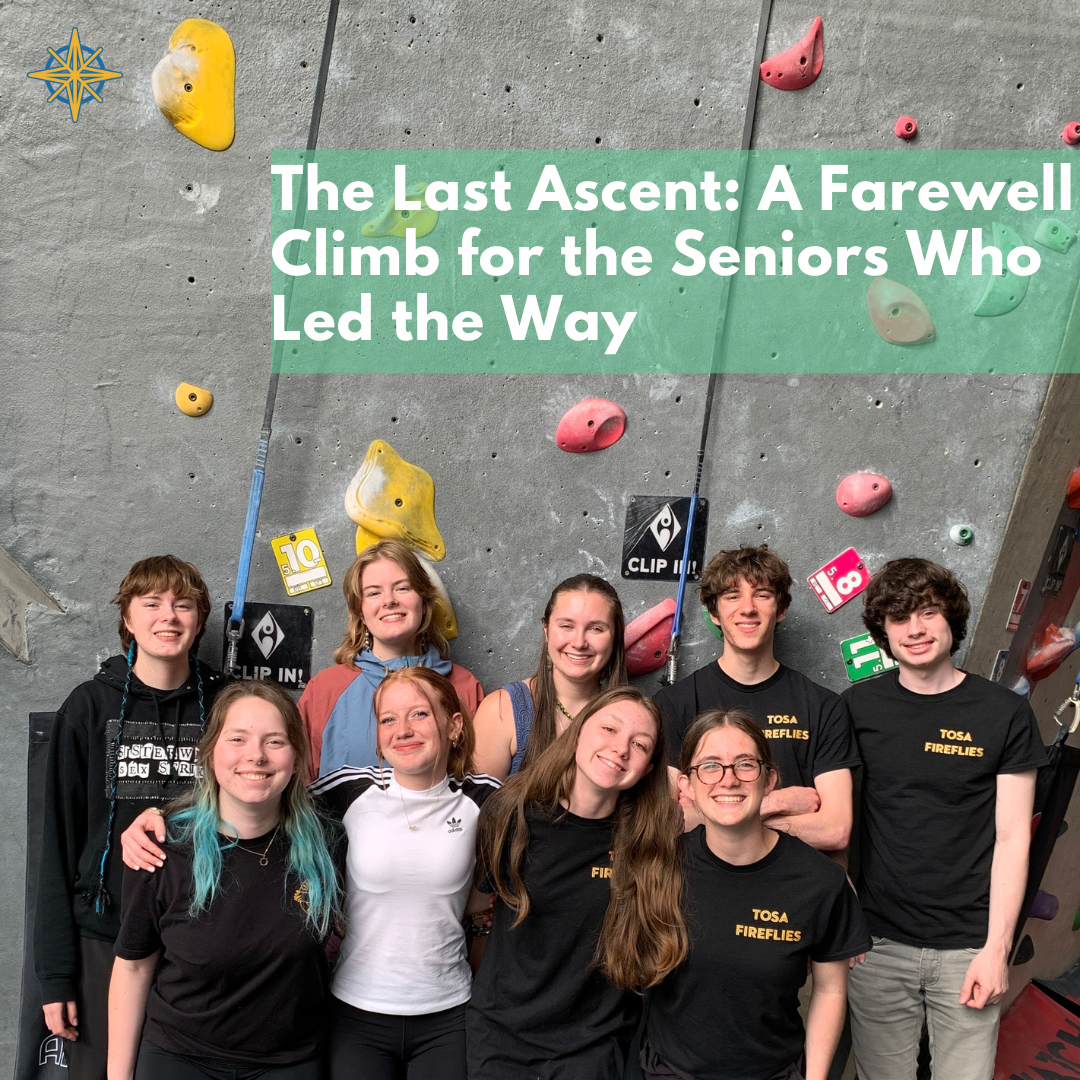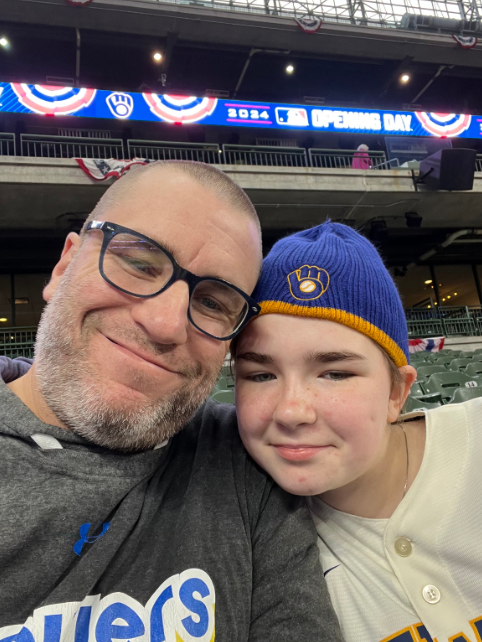The Impact Social Media Causes On Body Image
Graphic by Evelyn Skyberg Greer to represent the impact of social media on body image.
October 20, 2021
Using social media at 12 years old caused now senior, Jami Timmons to struggle significantly with positive body image, and instagram didn’t help.
“I didn’t grow up seeing people who looked like me, let alone have the same body type as me. I hated what I saw in the mirror, it was one of my darkest times and was a traumatic time in my life that compromised my views of life and health,” said Timmons.
When she opened apps like Instagram, she would see famous models and celebrities and admire how they looked. The comparisons she made took a toll on her emotionally and affected how she perceived her body.
“I remember from the age 13-16 years old, starting middle and high school and hating what I saw in the mirror. I kept on comparing my body to these fashion models and other friends that were just white skinny girls.”
To recover, Timmons took steps to build a positive body image. It was a challenge since Timmons first downloaded Instagram at 12 years old and had incorporated it into her everyday life. She limited the amount of time she spent scrolling, the number of pictures she posted and learned to control urges to check it.
“It’s kind of sad, but then I realized I wasn’t alone, that my body was perfect the way it was. I worked through and got past it, my friends and family did play a part in that,” said Timmons.
Many people, especially teenagers, have experienced similar emotions while scrolling through social media. When the Wall Street Journal published internal Facebook research from whistleblower Frances Haugen in early October revealing Facebook documents that showed that Instagram had a detrimental effect on the body image of teen girls, it sparked a debate across the nation.
“Social media has made me more insecure about my body because I compare my body to these Instagram models and even just friends I follow,” said Tosa West junior, Edie Eckblad, “Over time I have gotten used to feeling this way about myself and honestly social media is the reason why. I continue to see this “ideal” body being posted and people praising them. It makes me feel like I’m being judged on social media because I don’t have that ideal body type,”
When opening up social media apps, people are faced with words like “skinny”, “hourglass”, “diets”, and “fat loss”. This can trigger a reaction and lead many to compare themselves to the “praised” body types being presented on these platforms
“I think that body image and the way those expectations are portrayed on social media can be damaging, and set unrealistic standards for girls, especially teenagers. It has affected me, and other people I know, just by girls and being expected to look a certain way that is unrealistic, unhealthy, and unnatural,” said Tosa West sophomore, Melina Keenan.
Tosa West sophomore, Keira Dicastri also pointed out that there is a biological factor that comes into play when it comes to one’s body type.
“The reason behind a lot of the girls’ body shapes is genetic, but young people on the Internet who strive to look like them don’t understand that. So they work for that body and get mad at themselves when they can’t achieve it,” said Dicastri.
Social media also affects many teenagers’ self-esteem.

“It can be really difficult for me at times to see people living and looking perfect, but it doesn’t show the whole story. It’s a false reality for many and I try to remind myself of that as well as follow and surround myself with people who will uplift me instead of bring me down,” said Tosa West junior Olivia Veit. “At the same time, I love social media to stay up to date with my friends and family as well as the trends.”
Even though social media can be beneficial for maintaining connections, the way social media can impact a person can be damaging to both their physical and mental health.
“People make their lives look a lot more interesting and better on social media than they are in real life. No one is with their friends 24/7 or traveling all over every weekend, but they can portray themselves that way on social media, which can cause other people to look at their posts and wonder why their life isn’t as exciting as the other person’s, creating a negative self-reflection,” Tosa West senior, Elise Beaudoin said.
Apps like Instagram can lead to decisions that aren’t in the best interest of a person’s health.
“Everyone does not look like Kendall Jenner or Kim Kardashian and that is a good thing! However, seeing people like Kim K or Kendall Jenner or even friends who post pictures where they look good makes people look at themselves and naturally compare, leading them to doubt their appearance, which can cause them to then start unhealthy eating habits, leading to eating disorders,” said Beaudoin.
What shows up on apps like Snapchat, Instagram, and Tik Tok can significantly impact a person’s mindset on what society deems the mainstream body standards and how to reach that.
“There’s so much false information about how to achieve that body type, that sometimes you can’t even tell that what you’re doing is hurting you until it’s too late. I’ve heard too many stories about people who started to make drastic changes to their lives because they saw in a video somewhere that it would help them reach that body goal in only a few weeks. But in reality, that’s not only unachievable, but it’s dangerous. It’s hard to stop once you start.” said DiCastri.
However, not everything presented on social media presents is negative.
“I think that social media can have a positive impact on your life as well. There are so many ways to reach out and meet people who can help you through things, and a lot of people find comfort in knowing that they are people around the world who care about them, so it’s really about personal limits and how you project yourself on the internet,” said Dicastri.
While social media has been a factor in low self-esteem, it can help to promote the Body Positivity Movement. This movement spreads the message that every body is beautiful and works to ignore the unrealistic body image that society expects.
“I’ve gained confidence over the years and paid less attention to these types of posts and the comments I see. Nowadays instead of seeing these picture-perfect bodies, I feel like body positivity has become a more popular aspect of social media which makes me proud of the body I have,” said Eckblad.
When it comes to platforms like Instagram and Snapchat, it’s essential to know what each person can handle and what limits one should set for themselves.
“I have friends who have fallen into the social media trap, and I do everything I can to make sure that I don’t fall victim to it too, but sometimes I catch myself comparing my body and need a reminder to take a step back. I think we all need to be proud of the bodies that we have, and learn to be accepting of the bodies other people have as well,” said West sophomore Dicastri
Even while taking these precautions, it’s still easy to let social media alter your perception of life, but it’s important to remember that not everything on social media is real.
“Social media users only post things they deem worthy of posting, which usually means pictures they look good in, or sometimes even photoshopped things to make themselves look as if they fit society’s standards which are impossible.” Tosa West senior, Elise Beaudoin.
“We should all love our body no matter what, if you’re healthy then you’re healthy and living because as beautiful young girls, boys, and non-binary [people], at the end of the day we should realize that we are beautiful and flawless human beings,” said Tosa West senior Jami Timmons.



